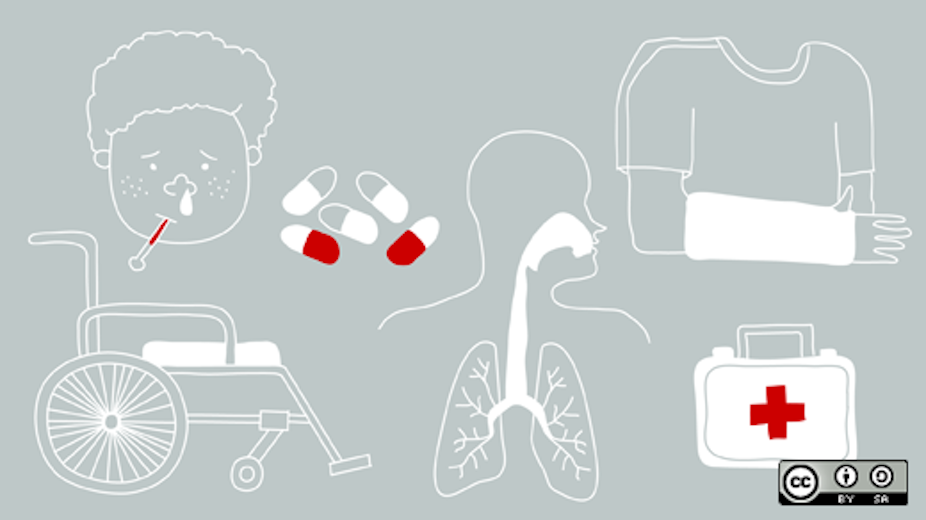An article published in the journal of the British Medical Association, BMJ, earlier this week illustrates a devastating problem with the “evidence base” in the academic medical literature.
A large proportion of drug trials, particularly those sponsored by pharmaceutical companies, never get published, skewing our picture of drugs’ effectiveness and safety.
But it’s not all bad news; a UK initiative called AllTrials is seeking to remedy the situation by calling for the results of all clinical trials to be published.
A festering problem
Research published in 2010 showed results unfavourable to sponsored drugs are less likely to be published, or selectively published to put a favourable “spin” on poor results.
And internal pharmaceutical industry documents released from court cases show concealment of data is a widespread practice.
A colleague and I assessed such documents about psychiatric medications from five pharmaceutical companies. The papers suggested widespread overstatement of benefits and understatement of adverse effects.
Other researchers have found similar problems with different drugs.
Journals respond
In response, some medical journals voluntarily agreed to publish only studies registered on a website of the US National Institutes of Health, ClinicalTrials.gov.
At least studies with unfavourable results would not be “buried” by drug companies. But the BMJ article confirms that many registered studies still don’t get published.
Chief editors of major medical journals have condemned the status quo. Marcia Angell of the New England Journal of Medicine has called industry-sponsored research “a broken system”; Richard Horton of The Lancet answered the rhetorical question of his editorial “How tainted has medicine become?” with “heavily, and damagingly so”; and the BMJ’s Fiona Godlee told a British parliamentary committee that “drug companies should not be allowed to evaluate their own products.”
The previous chief-editor of the BMJ, Richard Smith has offered a radical solution – journals should stop publishing drug trials and instead provide expert critiques of the full data and methodology of trials posted on regulated websites.
The AllTrials initiative
The AllTrials initiative aims to make that vision a reality. It intends to make the (de-identified) results and methodology of drug trials available to independent researchers so journals can publish in-depth articles based on all of the full data.
In 11 months, the campaign’s petition has gathered over 59,000 individual signatories and over 400 medical and health-care organisations. These include many British medical colleges and learned academic medical science institutions, such as the Cochrane Collaboration and the British National Institute for Health and Clinical Excellence (NICE).
Although the campaign is progressing slower outside the United Kingdom, it is managing to get some traction internationally.
The World Association of Medical Editors (WAME), the South African Medical Research Council and the Canadian Agency for Drugs and Technology in Health have signed.
Perhaps with an eye to the future, the International Federation of Medical Students Associations, the American Medical Students Association and the Australian Medical Students Association have gazumped their senior colleagues and also signed.
Trouble in Europe
The European Medicines Agency (EMA) – equivalent of America’s Food and Drug Administration (FDA) or Australia’s Therapeutic Goods Administration (TGA) – adopted a similar policy in 2010, and decided to release much of the drug trial data in its possession.
The EMA’s policy is currently stalled by a European Court injunction because of a lawsuit by two pharmaceutical companies. And Europe’s pharmaceutical industry body has threatened a “series of lawsuits”.
The ethical issue here has more to do with health professionals, journals, and governments; pharmaceutical companies need to make a profit. Nonetheless, GlaxoSmithKline has signed the AllTrials petition.
The way forward
Ultimately, people who practice and teach medicine, surgery, pharmacy, and other health-care professions, as well as regulatory and government all rely on good evidence to make the best decisions for our collective health.
As the chief editors of prestigious medical journals are now telling us, the current system is broken and unable to deliver evidence-based medicine. The implications of this are profoundly negative for both our health and financial well-being.
The AllTrials petition has garnered impressive support in just under a year. But more international support is needed for its aims to be fully implemented. A healthier, better-informed future depends on its success.
This article has been amended. In its previous version, it stated that LEO Pharma and GlaxoSmithKline had signed the AllTrials petition, but the text has been corrected to reflect that only GlaxoSmithKline has signed.
According to the AllTrials website, LEO Pharma has committed to greater transparency.

